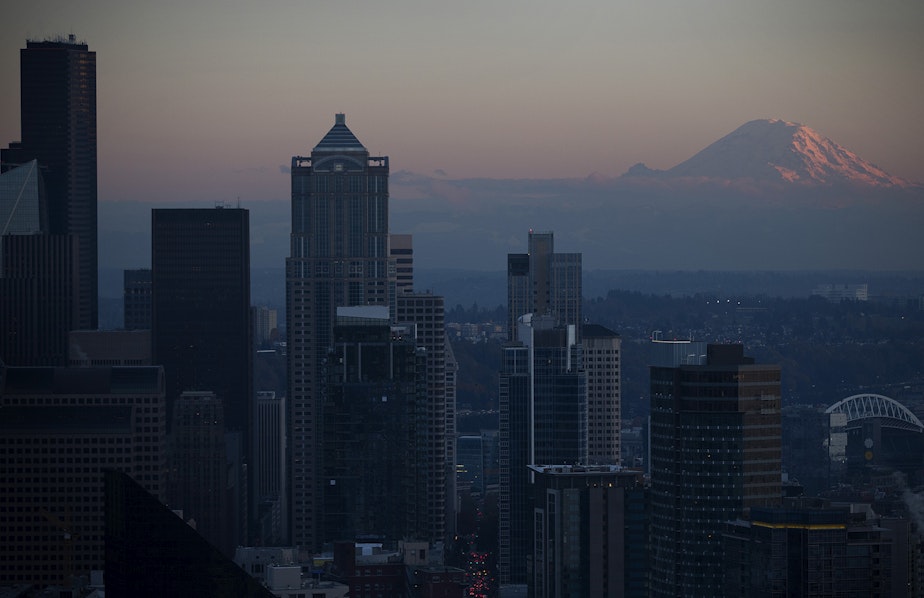Seattle lays out plan to uphold treaties and consider Indigenous concerns

Tribal leaders says they are optimistic about a new report breaking down commitments from the City of Seattle to work with Native groups and respect Native rights.
The report, which includes almost two dozen commitments, stems from a first-of-its-kind Tribal Nations Summit in May at City Hall between city officials, tribes, and urban Indian organizations.
Donny Stevenson, vice chair of the Muckleshoot Indian Tribe, said the meeting felt like a page in history has been turned — no more posturing land acknowledgement. He said he was motivated while at the meeting, and now wants to see follow through with the city's commitments.
“I want to see as much energy effort and action towards the decolonization of the system when it comes to Indigenous people as was placed into the colonization of Indigenous people,” Stevenson said.
Some of those commitments include reaching out to Indigenous groups on issues like the Duwamish River clean-up, sharing tribal history and culture in the region, but also making it easier for people and families who experience violence to better interact with police.
The plan also emphasizes the need for western governments, like the City of Seattle, to uphold treaty obligations and loop in tribes when city policy might overlap with treaties. Tribes in the region currently shoulder much of the responsibility for recognizing and pointing out when city measures impact tribes.
Sponsored
“This is the first time the City of Seattle has reached out to the Native tribes in the state of Washington to find out how we might be able to work together, and tackle some of the issues that people are experiencing,” said Luther Jay Mills, a Suquamish Tribal Council member.
Part of the treaties allots natural resources for the tribes like fish, but if those resources continue to dwindle because of human impact, Mills said it affects everyone.
“It’s still a vital source of food for our members,” he said, “or just everybody in general.”
Mills said he sees an opportunity to bolster the health of the waters, while also sharing the food from the Salish Sea with people living on its shores, including people who aren’t Native.
He said he would like to have people from different communities sit down and eat together, build community, and find solutions to problems everyone is facing together.
Sponsored
At the inaugural summit, Seattle Mayor Bruce Harrell echoed that sentiment.
"We want to provide opportunities for our city officials, our staff, and our residents to learn from the Native people of this land," Harrell said. "We want to amplify the voices, experiences, priorities and histories of the Indigenous peoples of this land."
Part of the report also touches on the cultural and natural resources that are significant to tribes. Last month, the Snoqualmie Indian Tribe asked Mayor Harrell to delay the implementation of a new tree ordinance, so they could add measures to protect culturally modified trees, also known as CMTs.
"This would give us time to make sure that there's proper and meaningful tribal consultation that occurs, and that CMTs and other cultural resources that would be impacted by that tree ordinance can be included in that language before it goes into effect," Jaime Martin from the Snoqualmie Indian Tribe told KUOW in July.
The mayor's office said they were unable to delay or amend the new policy, but Harrell met with tribal officials and said the city would work with Snoqualmie officials to identify and protect CMTs.
Some of the commitments made in the new city report require approval by different city and school councils before they can be fully implemented.
EDITOR'S NOTE: This article has been amended to more accurately reflect the exchange between the mayor's office and members of the Snoqualmie Indian Tribe.




